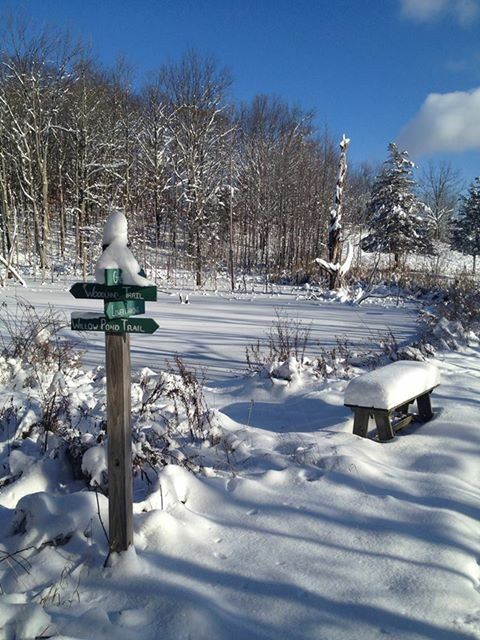This winter, the winter of 2017-18, was a real winter. It was cold. I mean cold, as in chapped lips, scarlet ears, aching toes. Slippery sidewalks and frozen pipes. The cold went on and on, with no let-up, no mild weeks of January thaw to give us a much needed break. And we got lots of snow, too, piles of the stuff. I’m sure this is no news to anyone, and you well remember your aching back as you shoveled the driveway or wrestled with the snowblower. Winter this year was a real one, all right: long, hard and bitter.
Just what we needed.
Spring is what we’re all yearning for: crocuses, balmy breezes, tee-shirt weather. Yet as we say a merry farewell and good riddance to winter, let’s take a moment to be thankful for the gift of cold.
“Cold as death” is how we usually think of winter. It’s hard to think of cold as a bringer of life. But in our latitude, plants and animals have adapted over countless millennia to the phenomenon of cold. They need winter to make it through to spring. The seeds of many plants won’t germinate without going through a period of cold. Plants and wildlife -- and maybe even humans -- need a period of dormancy, a rest from growth.

Cold is essential to many forms of life. There are many subtle, little-noticed benefits to a steady, seasonably chilly winter. The daffodils and tulips we’re longing to see come from bulbs that lie safely dormant in cold ground but might rot in the mud of a damp, mild winter. Sudden warm spells are especially disastrous. Animals wake too early from hibernation, move around burning up their reserves of stored-up fat, and then when the cold comes back, their energy is depleted, and they can’t survive. Buds opening too early get frost-nipped and never become flowers or fruit. Birds migrating north too soon get caught by sudden ice storms. Insects pupate too soon, can’t survive, and then aren’t available later as a food source for nesting birds.
Ticks are a real issue these days, and there’s nothing ticks like better than a gentle winter. Freezing temperatures won’t eradicate ticks completely, but they help to beat them back, as well as to hamper the spread of mosquitoes, harmful fungi, viruses, and bacteria.
We’ve all heard about the threat of climate change. Our planet is getting hotter, each year alarmingly warmer than the one before. And sadly, we’re all familiar with the idea of endangered species of plants and animals—the threat of losing orchids, ferns or whales. The idea of an endangered season is even scarier. What if winter never came?
Like everyone else, I’ll be glad to thaw out my toes, break out the shorts, and see spring start blowing softly in. But I’m grateful for a cold winter. Like they say, you don’t know what you’ve got 'til it’s gone.
